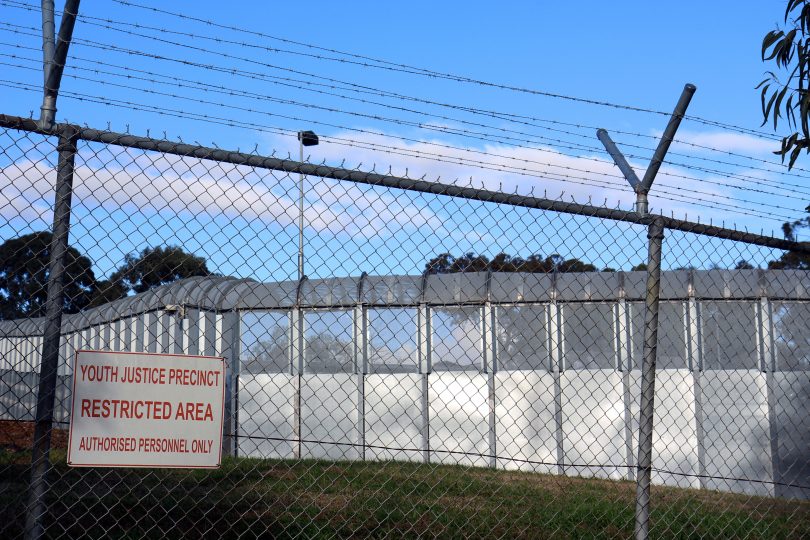Welfare organisations are calling for the Inquiry into Youth Justice Centres to focus the centres on rehabilitation, rather then punishment.
Jesuit Social Services CEO Julie Edwards said she wants the inquiry to develop a “vision” for youth justice centres that focuses on rehabilitation.
“It is very clear from the places we went that the deprivation of liberty is the punishment. We’re not trying to punish them on top of that.”
Save the Children’s state manager Claire Febey also wants the centres to focus on rehabilitation.
“One of the things that characterises a youth justice system to an adult justice system is that it can’t be about punishing the young person. It really must be about rehabilitating the young person,” said Ms Febey.
Part of the rehabilitation process should “address their offending behaviour, address their needs and get them on a pathway to integration and socialisation in the community,” said Ms Edwards.
Ms Febey also wants “more focus on therapeutic and evidence based ways of managing a period of detention for a young person, so that they can be properly rehabilitated and avoid contact with the justice system in the future.”

Torn material found in barbed wire that surrounds Melbourne Youth Justice Centre, Parkville. Photo: Alice Rennison
Youth justice centres are detention centres for people aged 10 to 18, and sometimes older if they committed an offence while 18 or under. It is the harshest punishment for someone who has committed a serious offence.
In 2015-16 there were around 5,500 young people aged 10 and older who were under youth justice supervision in Australia, on an average day.
The Sentencing Advisory Council found that 61% of people place in youth justice centres will reoffend within six years, in a study of detainees in 2008-09.
The Inquiry into Youth Justice Centres in Victoria is also looking into incidents that have occurred at the centres. As well as looking at the culture among staff and detainees in youth justice centres.
Incidents in the Northern Territory’s youth justice centres were investigated by Four Corners, with a particular focus on the Northern Territory’s Don Dale Youth Detention Centre.
The report found that children as young as 13 where being placed in solitary confinement. Young offenders in the centres were also being stripped naked, assaulted and tear gassed.
One person the ABC’s report focused on was Dylan Voller. The ABC found Mr Voller was repeatedly victimised while in youth detention in the Northern Territory. One piece of footage shows Mr Voller, when he was 13 or 14, being forcibly stripped naked, carried by the neck and being thrown across a room as well as being knocked to the floor by staff.
The ABCs Four Corner’s report spurred the Australian government to create a Royal Commission into the Protection and Detention of Children in the Northern Territory.
The Royal Commission focuses purely on the Northern Territory’s youth justice system. But other inquiries have been established in individual states, such as Victoria, since Four Corner’s investigation.

Outside of Melbourne Youth Justice Centre, Parkville. Photo: Alice Rennison
A submission to Victoria’s inquiry by Michelle Rogers, a former youth worker in Malmsbury youth justice centre, says the centres full time staff were replaced by casuals.
“Casual staff replaced full timers straight out of school, (casual staff had) great intentions of making a difference. Then the first time a client (a detainee) goes off and you need to diffuse the situation, the connection isn’t there and gets out of control very quickly” wrote Ms Rogers.
Ms Rogers also wrote: “the human element has been forgotten and the basics of the human connection and feeling safe has been taken out.”
“If you’re really going to redesign a broken system please ask yourself what you want to achieve.”
Save the Children and Jesuit Social Services want the inquiry to look at successful overseas international youth justice systems, such as Spain.
Ms Edwards visited Spain’s youth justice centres earlier this year. Ms Edwards said in Spain staff in youth justice centres are well educated, holding a bachelors degree or higher. Staff are also picked to work in the centres based on their attributes.
Ms Febey also visited Spain’s youth justice centres. “In Spain and in many successful international youth justice systems, the detention centres are small, so there are a lower number of children, around 40 to 50.”
This enables staff to build a greater rapport with children in the centres, argues Ms Febey.
“What has been shown to be very effective is building trusting relationships between young people and adults and rehabilitating through a process of trust and rapport and care and kindness.”






